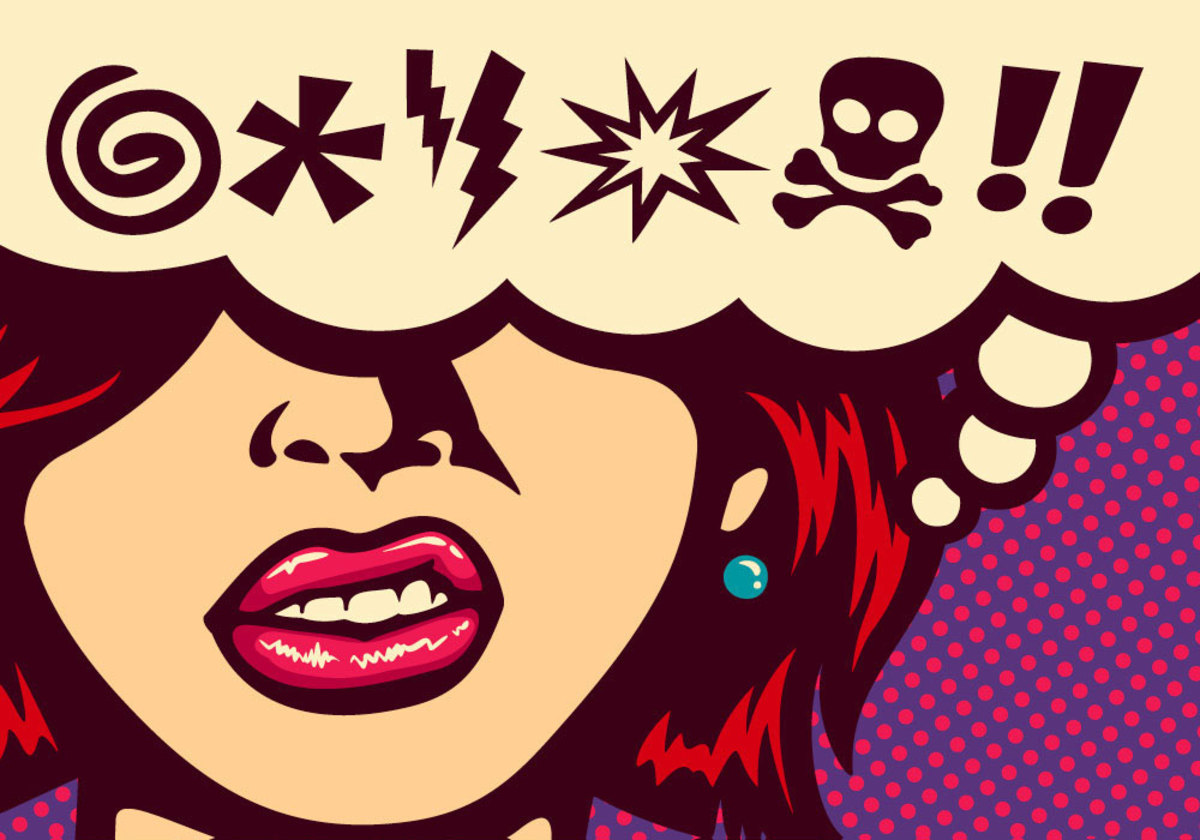How to Pronounce the Vowels of the German Language
The German Language - Vowels and Pronunciation
When you go to learn a new language, there is one particular obstacle which may be hard for many people to overcome. It is what separates the native speakers from those who are obviously learning it as a second language. It is the obstacle that allows the native speakers to know whether or not the speaker is from their country, and if they are, what part of the country they are from. This is especially relevant to English speakers, whether they are from America or the United Kingdom. Though you may be from the United Kingdom, das Vereinigtes Königreich, you can certainly tell who is from England (and for an even further breakdown, who is from northern England and who may be from the city, such as London), who is from Scotland, and who is from Ireland with little problem.
Similarly, if you are from the United States, die Vereinigte Staaten, you may be able to tell who is from New York, who is from a southern state, who is from the Midwest, and so on. The first obstacle to learning a new language, one that still uses the Latin alphabet, is learning the pronunciation of the alphabet, das Alphabet. For those who wish to learn German, this is a pronunciation guide aimed at the German vowels and diphthongs (we will get to the meaning of diphthongs later if you are unsure what they are). The German vowels are a bit trickier than the English vowels, because not only do you have to deal with the normal ones, A,E,I,O,U, and Y, you need to deal with an added dimension the vowels – the umlaut, and they become Ä,Ö, and Ü. Here is my pronunciation guide to aid you in learning German vowels, starting with ‘A’:

The German Language - A and Ä
The German ‘A’ without the umlaut has two distinct sounds, much like that of the English letter ‘A.’ In German, the ‘A’ can be either a long or a short sounding ‘A,’ but the trick is that they don’t sound just like any of the ‘A’ sounds that we use in English, but are just slightly different enough to make the difference important. The short ‘A’ is not pronounced as it is in English, but instead almost like the ‘o’ in either ‘otter’ or the word ‘modern.’ It can be tricky, but the ‘o’ in these two words sound very close to the short ‘A’ in German. The long German ‘A’ is pronounced similarly, but is just a longer version of the short ‘A.’ Consider the ‘o’ in otter being elongated to sound more like “ahh.” When the letter ‘A’ has an umlaut but on it, such that it is Ä or ä, it is pronounced just like the ‘ai’ in the words “pair” or ‘air.” There are two different sounds to the A combined with the umlaut, but it is much like the regular letter ‘a,’ where the second sound is more of an elongated version of the first sound instead of an entirely different sound.
The German Language - E and I
The letter ‘E’ has two sounds, stressed and unstressed, in German, as opposed to the two English ‘E’s’ which are long and short sounds. The stressed ‘E’ in German has two sounds, where it can be pronounced as the ‘e’ in ‘bet.’ The second stressed ‘E’ sound can sound like the ‘uh’ sound in ‘ugly.’ The long sound in German has only one sound, and it is a softer, more breathy form of ‘e’ that is not unlike the long sound in English. It sounds much like the ‘e’ in ‘hello.’ The letter E does not get an umlaut, so it is one less different sound you have to remember. The letter ‘I’ in German, one letter that also does not have an umlaut, has a short sound and a long sound, with the short sound being pronounced as an English speaker would say the letter ‘I’ in ‘mitten’ or ‘wind.’ When the long ‘I’ is pronounced in German, it sounds like ‘ea’ in ‘eat’ or like the ‘ee’ sound in English, such as “beetle.”
The German Language - O and Ö
The short sound of ‘O’ in German is tricky. There aren’t many words in English that use the letter ‘O’ the way that the Germans do. When pronouncing the German letter ‘O’ when it is the short sound, it sounds somewhat like the English ‘o’ in the word “lord” or “hot.” When pronounced as the long sounded ‘O’ in German, it sounds like the English ‘U’ sound in “boot” with the double-O sounding. When the ‘O’ becomes ‘Ö’ it continues to have two sounds, with the first being the short sound. The short ‘ö’ in German equates to ‘oe’ in both German and English. The short ‘ö’ sounds like the ‘u’ in ‘fur’ or the ‘e’ in ‘earn,’ but rounding your lips to produce a more “o” sound.
The German Language - U and Ü
The ‘U’ in German is fairly easy for English speakers to pronounce. When you are thinking about how to pronounce the German ‘U,’ whether it is long or short, it sounds like the ‘oo’ sound in English. When pronouncing it, it sounds like the ‘oo’ in ‘boot’ or ‘food,’ or generally how you would pronounce ‘u’ or ‘you’ in English. The biggest problem with ‘U’ is when you put an umlaut over it. When ‘U’ becomes “Ü,” that’s when the letter becomes a problem for English speakers. Once you understand how to say ‘ü,’ it becomes fairly easy to remember because of the short German word für, which helps to reinforce the pronunciation. There is no real equal for the German ‘ü’ in English. When considering how to say it, it sounds like the ‘yoo’ sound in ‘you’ without the ‘w’ ending sound at the end of it. The word that was stated before, für, is the German word for “for.” Für is pronounced closely to “fyour” without enunciating any spaces between the f and your. The letter ‘Y’ in German is rarely used. When you come into contact with it, it is a word that is from a different language. Pronounce it as you would in English, or as you would pronounce it in the language from where the loanword came.
A Pronunciation Guide for German Vowels
If you have any problems with using the pronunciation guide in paragraph form, here is a list form of the pronunciation guide for vowels for you to use:
A- o as in ‘otter’; a as in ‘hard’
E – e as in ‘bet’; uh as in ‚ugly‘
I – i as in ‘mitten’; ‘ee’ as in ‘beetle’
O – o as in ‘lord’; ‘oo’ as in ‘boot’
U – ‘oo’ as in ‘food’
Y – y as in ‘your’ or the language the German loanword came from
Ä – ‘ai’ as in ‘air’
Ö – u as in ‘fur
Ü – no real English equal, think of the ‘you’ in ‘your’ without the ‘r’, or “fyour”
Pronunciation guides and reading can only do so much. Many online pronunciation guides can help you by having native German speakers pronouncing the letters so you can hear it. When trying to pronounce through reading, say the English words that the German letters sound like out loud so you can get a feel of it.
Learn German Quickly with Rocket German
German is often a difficult language for people to understand and learn, especially at the beginning. It's important to keep on it, so try this program, Rocket German.
- The Pronunciation Guide for German Consonants
This will look at the German language and the pronunciation of the consonants to assist those who are attempting to learn how to speak the German language. It will help to relate English sounds to the German letters to assist English speakers. - Why You Want to Learn German
Have you ever wanted to learn a different language? Has education in a foreign language been difficult for motivation? This is an article about why it is worthwhile to learn German in your spare time. - The German Language: A Pronunciation Guide for Diphthongs and Grouped Consonants
German can be difficult enough to learn without being tripped up by pairs and groups of letters, vowels or consonants, that make a different sound than it appears. This article will provide a guide to the diphthongs, or grouped vowels, in German as w








